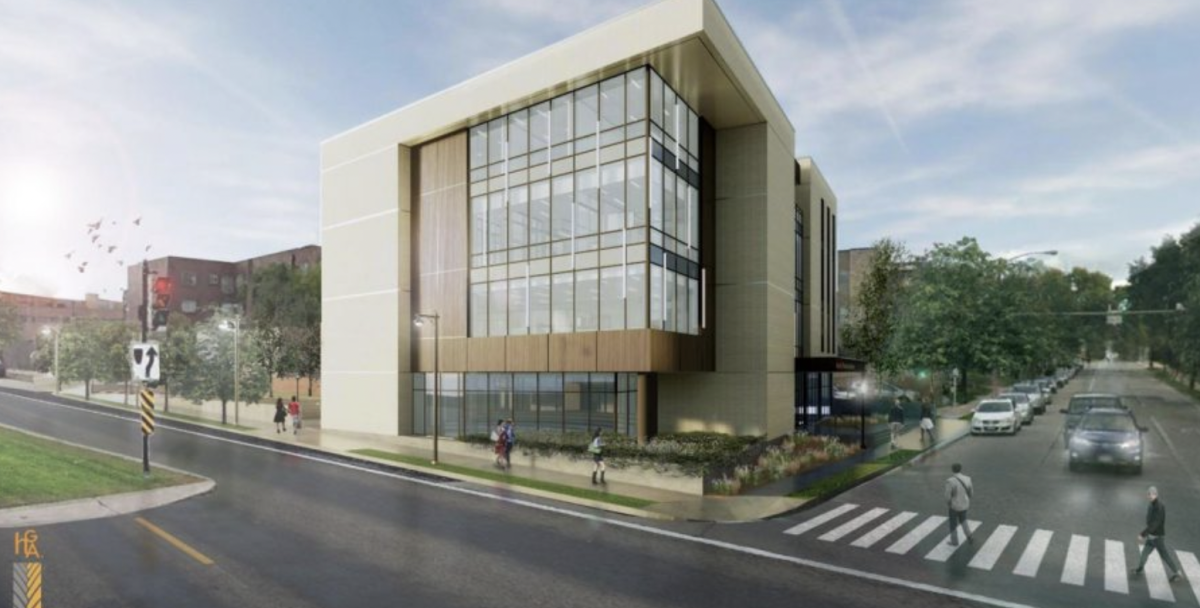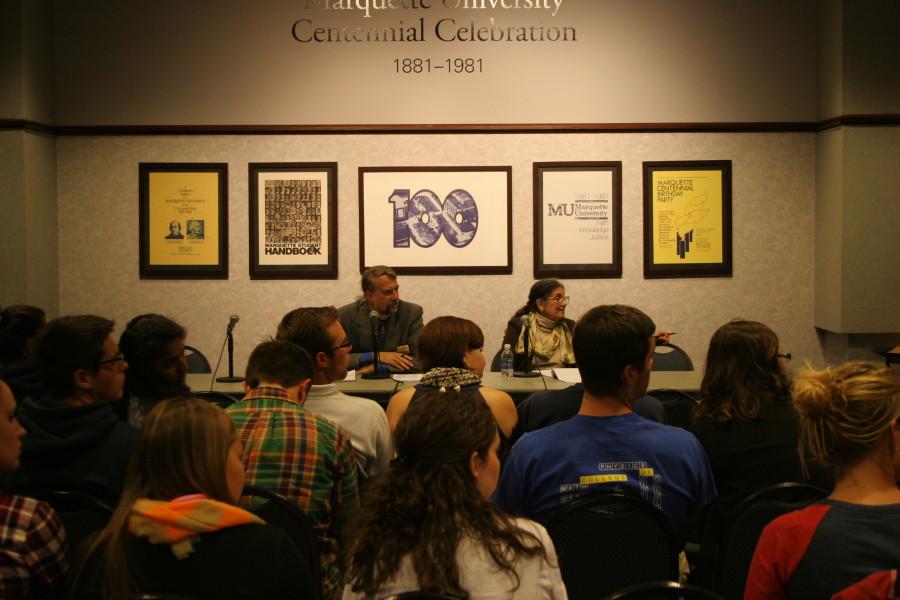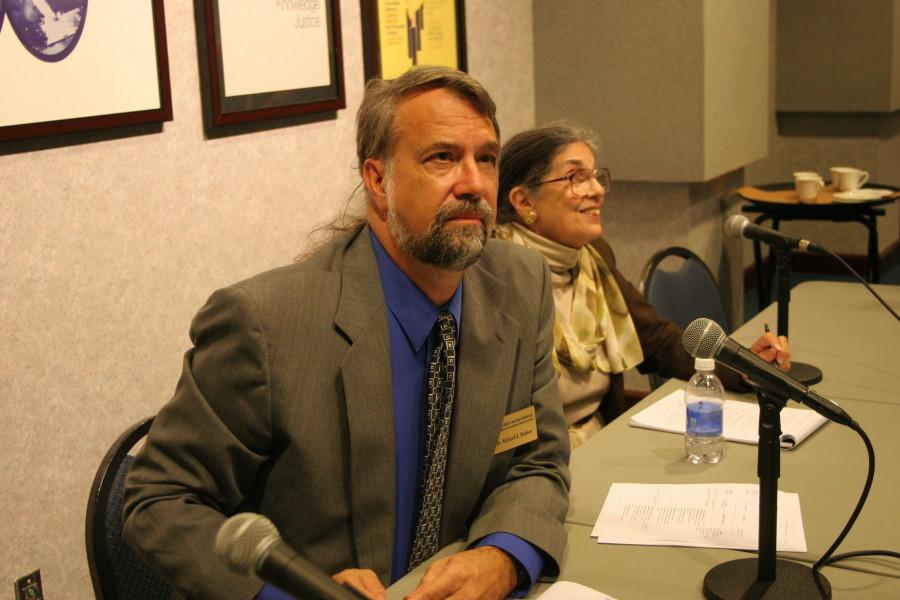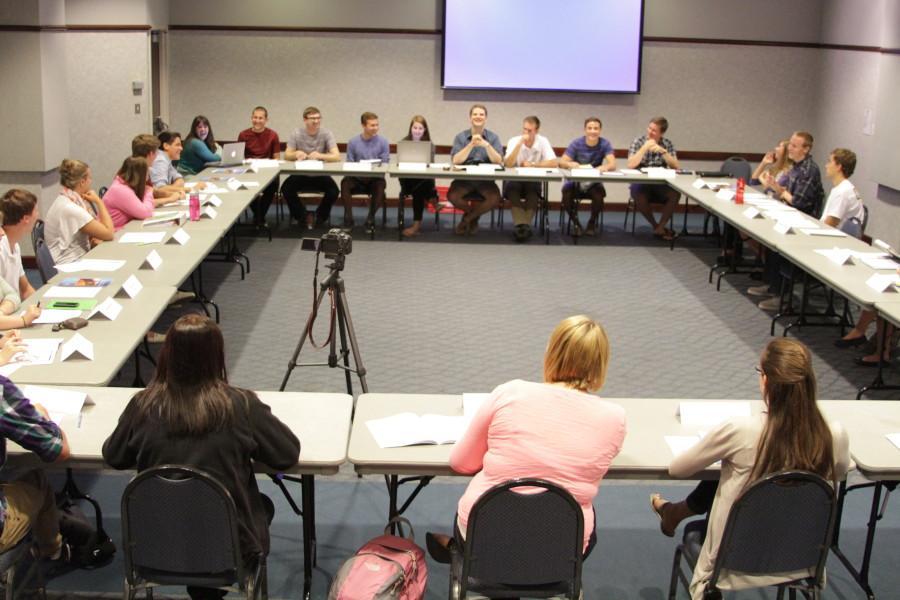Every 10 years Marquette seeks accreditation by the Higher Learning Commission, an agent of the North Central Association of Colleges and Schools. Marquette’s decade-long accreditation expires at the beginning of the 2014 academic year. The university has the opportunity to renew this recognition through an accreditation reaffirmation process.
The commission, founded in 1895, is one of six regional institutional accreditors in the country and has accredited over 1,000 institutions in the north central region of the U.S. according to its website.
The university began preparations for the commission’s reaccreditation in March 2011, said Gary Meyer, co-chair of the steering committee and vice provost for undergraduate and programs and teaching.
To qualify for reaccreditation, Marquette must submit a self-study report and evaluate its effectiveness at meeting certain criteria. The five necessary criteria pertain to the university’s mission, institutional and educational integrity, high quality educational resources and support, institutional effectiveness and ongoing evaluation and improvement of its educational programs.
This report is followed with a visit by the commission’s representatives, who further inspect the validity of the self-study. Marquette’s on-site visit is scheduled to take place from Sept. 30 to Oct. 2, 2013, according to an Oct. 11, 2012, university news brief.
More than 120 Marquette faculty and community members are participating in the reaffirmation part of the reaccreditation process, with one steering committee coordinating the efforts of nine subcommittees to aid in creating the self-study and planning the on-site visits. Marquette must demonstrate its compliance with these five criteria by providing evidence to substantiate their claims.
Sharron Ronco, assessment director and one of the co-chairs of the Subcommittee for the Evaluation of Teaching and Learning, said evidence will likely take the form of university documentation such as school policy and procedures, student retention and graduation rates, student surveys and specific program accreditation reports.
Meyer said strategic plans, descriptions of student organizations, student and faculty handbooks, and reports for task forces may also be used. All evidence will be handled and processed by the evidence subcommittee.
“The goal (of the subcommittees) is to provide an accurate accounting of the university’s work in a given area, to make a ‘snap shot’ of sorts for the accreditation team, allowing those experts to determine how (or) if we meet the criteria established by the Higher Learning Commission,” said Stephanie Quade, dean of students and a co-chair of the subcommittee for integrity, in an email.
Marquette’s chosen theme for the self-study is “Reflect-Affirm-Inspire.” The first self-study draft will be completed sometime this fall and released to the Marquette community for feedback between Jan. 28 and Feb. 15, 2013. The 200-page final draft will be submitted to the commission in August 2013, about two months before the on-site visit.
Gary Krenz, a co-chair for the subcommittee for mission, said there are always areas of possible improvement at Marquette. In particular, he said one criteria on which Marquette needs further improvement is that the institution understand “the relationship between its mission and the diversity of society.”
“While Marquette has made advances with regard to diversity, we do not have a student body, or a faculty, that reflects the diversity of the United States,” Krenz said in an email.
According to the university website, the value of accreditation for Marquette is “public certification of acceptable institutional quality” and the “opportunity and incentive for self-improvement in the accredited institution.”
Meyer said the true advantage of reaccreditation is often overlooked because it is seen as something the university has to do. He said the heart of the reaccreditation process is its self-reflective nature. Meyer believes it gives the school an opportunity to strengthen its weaker attributes through continuous improvement.
Meyer said Marquette has retained the commission’s accreditation for 90 years and it would be very unlikely for it not to be renewed this time around. He said the current reaccreditation process is operating very smoothly but projected the commission will have critiques for academic and institutional areas in need of improvement.
There are sixty-four other institutions accredited by the commission in Wisconsin, including the University of Wisconsin–Madison and the University of Wisconsin-Milwaukee. The University of Notre Dame, Saint Louis University and Rockhurst University are also accredited through the commission.







